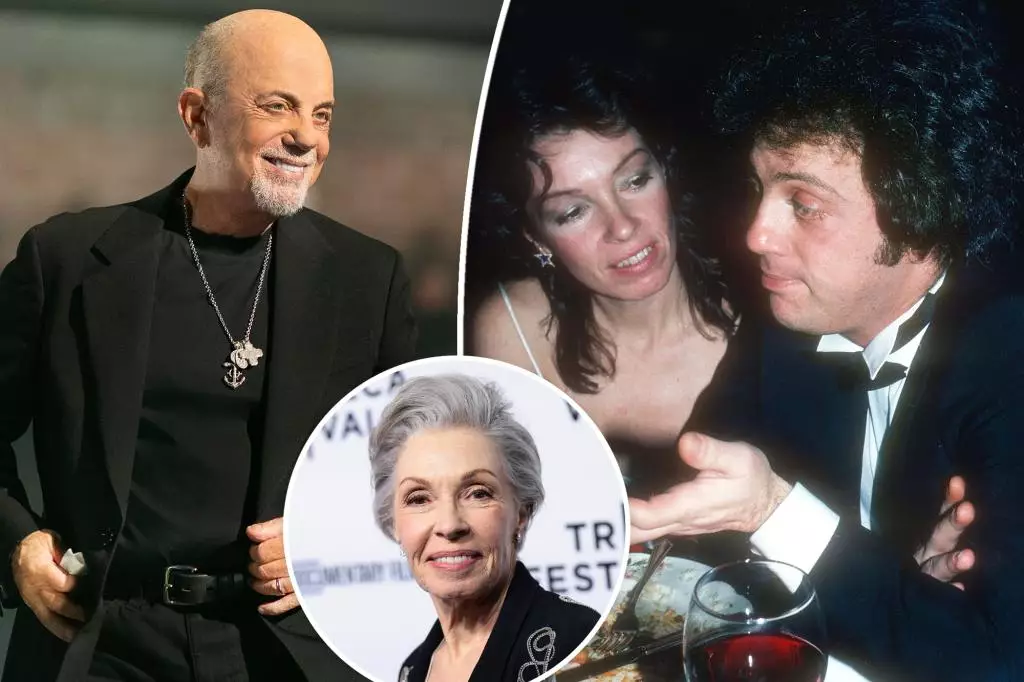The nuanced dynamics of celebrity relationships often captivate public interest, and the story of Billy Joel and his first wife, Elizabeth Weber, is no exception. Their relationship, marked by romance, tumult, and eventual separation, provides a poignant glimpse into the complexities of love and the toll that fame can take on personal lives. Weber’s candid remarks at the Tribeca Festival premiere of the documentary “Billy Joel: And So It Goes” reveal not just the state of their relationship today, but also cast shadows over their shared history, illuminating the highs and lows that come with being intertwined in the life of a music icon.
The essence of Weber’s statement—“[We’re] friendly but not close”—hints at a reality many can relate to: the difficulty of maintaining relationships, especially after romantic ties have been severed. Their amicable yet distant rapport emphasizes the reality that divorce often necessitates a reevaluation of bonds, even beyond the primary relationship. Weber’s lighthearted but candid acknowledgment of her multiple marriages underscores a broader narrative about the personal reinventions that can occur post-divorce. While both have moved on significantly, the echoes of their past remain intertwined like a melody that lingers long after the last note fades.
The Weight of Fame
The documentary, “Billy Joel: And So It Goes,” offers a rare look into Joel’s illustrious yet tumultuous life. However, his recent diagnosis of normal pressure hydrocephalus adds a poignant layer to this narrative. The absence of the iconic pianist from the premiere speaks volumes about the realities of health in the face of fame. This severe brain condition could signify an era of challenges ahead, suggesting that even a music legend is not immune to the struggles of mortality. This vulnerability can provoke an emotional response from fans who perhaps only see the surface-level sheen of celebrity.
Weber’s presence at the premiere, despite Joel’s absence, raises insightful questions about legacy and moving forward. When she remarked that rock ‘n’ roll hasn’t been kind to women, she drew attention to the often-overlooked gender dynamics within both the music industry and the broader cultural context. This recognition of systemic inequities not only speaks to her personal experiences but also to those of many women who have had to navigate a male-dominated space. The implicit critique in her statement resonates deeply, highlighting that the glamour of celebrity life often conceals darker realities.
The Legacy of Love Songs
No discussion of Joel’s legacy would be complete without acknowledging his music—particularly his famous ballad “Just the Way You Are.” Written for Weber, this song transcended the couple’s tumultuous relationship and became a classic. Yet, its genius also reveals the complexity behind romantic gestures that might age poorly once the relationship concludes. Joel’s later decision to redefine the song’s lyrics post-divorce serves as a stark reminder of how personal narratives shift over time. It playfully exemplifies how love songs can transform into public spectacles, often misinterpreted by those outside the relationship.
Weber’s nonchalance regarding Joel’s humorous adaptations speaks volumes; it demonstrates her ability to separate the personal from the public, a skill that is invaluable in a life filled with media scrutiny. Her acceptance of the song as a “birthday gift” and her pride in its enduring popularity manifest a level of maturity and self-awareness. Instead of feeling overshadowed by the legacy of their past, she seems determined to carve out her own identity, one where she is not defined solely by her connection to Joel.
Moving Beyond the Limelight
In discussing her life in the shadows of the limelight, Weber emphasizes a crucial aspect of existence outside of celebrity culture: the need to focus on one’s journey rather than the narrative dictated by public perception. Her dismissal of past grievances reflects an overall empowering perspective; she embodies the notion that personal growth often comes from navigating and overcoming challenges. As both she and Joel continue to shape their identities independently, they contribute to a broader conversation about the necessity of moving beyond painful associations in favor of resilience and recovery.
Her reflections at the premiere present a fascinating contrast to the glitzy allure of the music industry. By sharing her truth, Weber opens the door for greater understanding—serving as a reminder that behind every public figure, there exists a tapestry of private struggles, triumphs, and growth. The spotlight can often distort relationships, but it can also illuminate the paths toward self-discovery and healing, with each person writing their own story, regardless of shared histories or past sorrows.

